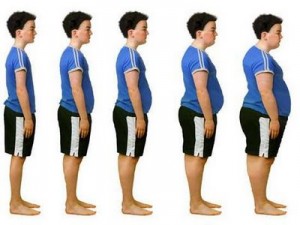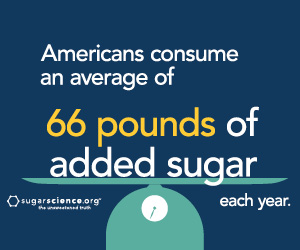 Here at EBL, we love hearing from readers who have comments or questions about the evidence. Recently, a commenter on our post about organic food asked whether washing conventional produce reduces the amount of pesticides consumed compared to eating organic fruits and vegetables. [Read more…]
Here at EBL, we love hearing from readers who have comments or questions about the evidence. Recently, a commenter on our post about organic food asked whether washing conventional produce reduces the amount of pesticides consumed compared to eating organic fruits and vegetables. [Read more…]
Can you wash pesticides off your fruits and vegetables?
Evidence-based dieting
 Here at EBL, we’ve written a lot about the health problems associated with obesity in the U.S. The good news is that an estimated 45 million Americans go on diets each year to lose excess weight. But many weight-loss programs are never evaluated in scientific studies, leading participants to spend time, energy and money on programs that are not evidence-based. [Read more…]
Here at EBL, we’ve written a lot about the health problems associated with obesity in the U.S. The good news is that an estimated 45 million Americans go on diets each year to lose excess weight. But many weight-loss programs are never evaluated in scientific studies, leading participants to spend time, energy and money on programs that are not evidence-based. [Read more…]
Looking back at the evidence: Low-fat diets
 In the 1970s, heart disease was the leading cause of death in the United States. A group of U.S. Senators wanted to do something about it.
In the 1970s, heart disease was the leading cause of death in the United States. A group of U.S. Senators wanted to do something about it.
After a series of hearings, Congress voted to enact the first set of Dietary Guidelines for Americans in 1977. Essentially, the guidelines recommended that Americans reduce their intake of saturated fat found in eggs, milk, meats and cheese, and replace those calories with carbohydrates. [Read more…]
Recess before lunch to improve eating habits?
 When my son started kindergarten last year, I was astonished at how little of his lunch he actually ate. I would pack a nutritious meal displayed in a cute, compartmentalized tray, and often he only took a small bite of each item I packed. [Read more…]
When my son started kindergarten last year, I was astonished at how little of his lunch he actually ate. I would pack a nutritious meal displayed in a cute, compartmentalized tray, and often he only took a small bite of each item I packed. [Read more…]
The evidence on sugar
 If you pay any attention to advice about healthy eating, you’ve heard that you should avoid added sugar as often as possible. Now a team of health scientists from the University of California, San Francisco has launched a new web site that provides scientific evidence about sugar and its impact on health. [Read more…]
If you pay any attention to advice about healthy eating, you’ve heard that you should avoid added sugar as often as possible. Now a team of health scientists from the University of California, San Francisco has launched a new web site that provides scientific evidence about sugar and its impact on health. [Read more…]
Evidence-based health: Lose those extra pounds now
 Christmas cookies are my worst dietary weakness. If they’re in the house, I can’t help but munch on them. So I’m coming back from a lovely holiday break at least a few pounds heavier than before. [Read more…]
Christmas cookies are my worst dietary weakness. If they’re in the house, I can’t help but munch on them. So I’m coming back from a lovely holiday break at least a few pounds heavier than before. [Read more…]
Exploring the link between diet and mental health in kids
 Over the past 30 years, the rate of childhood obesity has more than doubled in the United States, increasing the risks for cardiovascular disease, diabetes and joint problems. Last month, a new systematic review found obesity among kids is associated with yet another health problem. [Read more…]
Over the past 30 years, the rate of childhood obesity has more than doubled in the United States, increasing the risks for cardiovascular disease, diabetes and joint problems. Last month, a new systematic review found obesity among kids is associated with yet another health problem. [Read more…]
How important is breakfast, Part 2
 Earlier this week, we wrote about the body of evidence that shows eating breakfast does not lead to weight loss. But does eating breakfast impact cognitive function and learning? As my kids head back to school this week, it’s certainly a question on my mind.
Earlier this week, we wrote about the body of evidence that shows eating breakfast does not lead to weight loss. But does eating breakfast impact cognitive function and learning? As my kids head back to school this week, it’s certainly a question on my mind.
How important is breakfast?, Part 1
 Crowning breakfast as the most important meal of the day is a long-held conviction among many Americans and some nutritional experts. In reality, there are data on both sides of the debate showing that breakfast is essential to maintaining a healthy weight, and also that breakfast is no more important than any other meal for weight loss. Recently, new evidence sheds more light on the topic. [Read more…]
Crowning breakfast as the most important meal of the day is a long-held conviction among many Americans and some nutritional experts. In reality, there are data on both sides of the debate showing that breakfast is essential to maintaining a healthy weight, and also that breakfast is no more important than any other meal for weight loss. Recently, new evidence sheds more light on the topic. [Read more…]
The science of cooking
 As gardens and local farms are in full swing this month producing vegetables of all sorts, I’ve found myself revisiting America’s Test Kitchen to make sure I’m using evidence-based techniques in my kitchen. I thought it’d be a great time to revisit this post about this culinary research center. [Read more…]
As gardens and local farms are in full swing this month producing vegetables of all sorts, I’ve found myself revisiting America’s Test Kitchen to make sure I’m using evidence-based techniques in my kitchen. I thought it’d be a great time to revisit this post about this culinary research center. [Read more…]
Kids and food allergies: What we don’t know
 We had some excitement at our house this past month when my 8-month-old daughter had two systematic allergic reactions to food. [Read more…]
We had some excitement at our house this past month when my 8-month-old daughter had two systematic allergic reactions to food. [Read more…]
How to measure childhood obesity
 Obesity has more than doubled in children and quadrupled in adolescents in the past 30 years, according to the U.S. Centers for Disease Control. Now a new systematic review has found that even more youth may be classified as obese. [Read more…]
Obesity has more than doubled in children and quadrupled in adolescents in the past 30 years, according to the U.S. Centers for Disease Control. Now a new systematic review has found that even more youth may be classified as obese. [Read more…]


